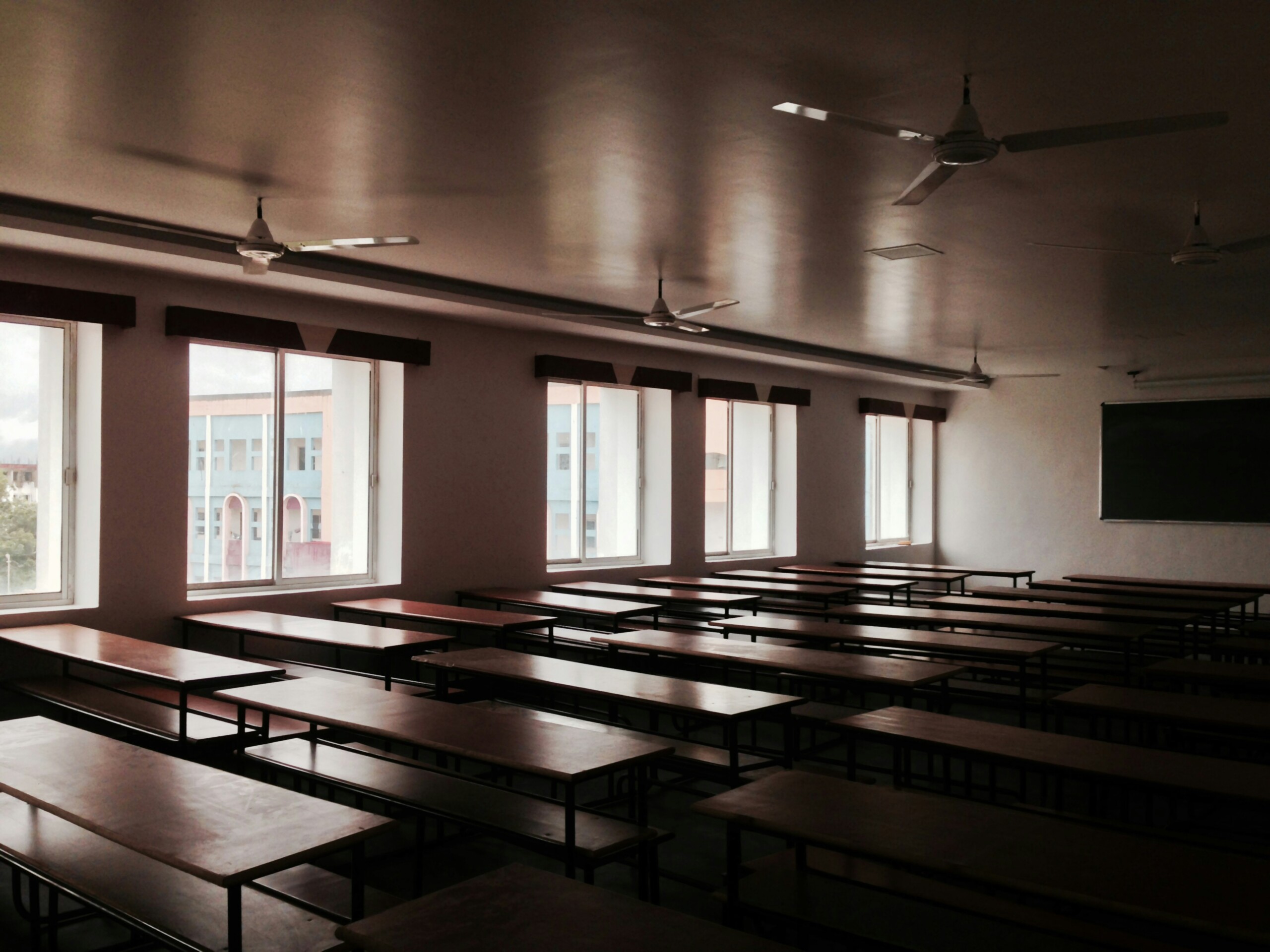The faculty summer. You all know what I mean when I say that it’s a complicated phenomenon, right?
I mean, think about it; we just completed a crazy spring semester (after getting through a crazy fall semester). As the end of the semester approaches, we start to slow down with the committees and other university service opportunities. We also begin to say goodbye to our amazing students – including the somewhat emotional pull in saying goodbye to our graduating seniors. Then we have finals, commencement, grading, inputting the final grades, finalizing student requests, and making sure that we have a loose idea of the classes on our schedule for the fall. And then suddenly, just like that – it’s summer.
So that naturally means that we are off. The days are ours; we get to relax, unwind from the amazingly fruitful yet wildly stressful academic school year. We get to take two to three months of summer off to recharge our batteries. Refresh our mind, bodies, and souls. Re-energize our calling, our passion, our mental fortitude – all in preparation for another school year so that we can be the best educators and mentors ever. As a faculty member, summer is our time. As my 13-year-old son would say – let’s go. It’s time to vibe.
Right? Well actually, it’s a little more complicated than that. At least, it is for me. Maybe you can relate.
My summer so far: after commencement, I worked for hours (days) to finish all the grading. I started working on end-of-year assessments and professional development plans. I worked on two writing projects that had tight deadlines and started teaching an online course. And then my kids ended their school year. I then tried to wrap up a few writing projects while also managing the kids at home. Because now, you know, they are home. All day. Every day. The summer is the only time to really take care of health concerns, and as such, I’m undergoing some treatments and procedures during the summer that would yield too much recovery time during the school year.
Now, don’t get me wrong, it’s not all doom and gloom; we have a few vacations booked, the kids have camp coming up, and I’m trying to make sure the kids are hanging out with friends while also having them manage household chores in-between epic video game sessions.
And even though I have some more time until the fall semester starts, I’m starting to feel some anxiety about the upcoming fall. I’ll be teaching two new (to me) courses that I will need to build from scratch. I will have a few new leadership opportunities that I want to make sure I’m ready for. I’m telling myself that I need to start working on all of that soon – so I’m not stressed out for the start of the semester. I’m reminding myself how well it went last time, when I waited until the week before classes started to start…working on my classes.
So, for me so far, my summer has consisted of caring for the household and the kids while working on writing projects and trying to stay in the research and publishing game, managing my health and trying to get well before the fall as well as trying to make summer fun for my family with trips and various outings with the anxious anticipation of needing to start planning for the fall.
I know, I know, right? Cry me a river, that just sounds like you are adulting just like the rest of us, right? And yes, I agree. I’m not complaining. I signed up for this, and I absolutely love it. I fully realize that my husband (and the rest of the non-academic world) is still working his full-time hours right now, that he doesn’t get a summer break – unless he uses his PTO. I’m fully aware that all the “not-teachers” are still plugging along. My point of this post isn’t to complain about the privileged life of faculty and their summers off (and in fact, technically and practically, I’m not actually “off”, as my university contacts are really for year-round work). My point of this post is to simply say that the faculty summer may not be super relaxing – that it might even be stressful in the lower-key season of summer.
A brief meta-analysis of the phrase “faculty summer stress” yields various articles on undergraduate students’ perceived stress levels in summer, faculty stress within supervising summer undergraduate researchers, and the importance of faculty engagement in summer courses. Searching “faculty summer” results in various articles on summer school courses and faculty interaction. When I searched under “how faculty unwind in summer” there were a few books and articles on the concept of faculty slowing down in their approach to tenure and general ideology. Searching for “faculty summer burnout” will lead you to many articles and resources on faculty burnout and resiliency in general. I did finally uncover an insightful 2020 article that articulated one faculty’s approach to summer:
As most faculty would attest, we do use our summers to rest and recharge but we also spend our “downtime” to advance our research and scholarship, to finally read the articles we’ve been meaning to all year, and to refresh or even completely redesign our courses. This year, I’m asking myself the question, “What can I do NOW to set myself up for a more successful fall quarter?1
I resonate with this. But for me, I’m afraid that instead of resolute determination and forward thinking, I’m feeling more like the impending doom of overwhelming exhaustion. Am I the only one feeling the many expectations of summer? I need to write and get something published, I need to plan and prepare for the fall, I need to take care of the kids, I need to take care of the things I couldn’t get done during the academic year, like health appointments, I need to create fun vacation experiences for the family. I need to…have a nervous breakdown.
I’m thinking (and hoping) that I’m not the only one.
So, what can we do? I realize that even with this awareness of how peculiar faculty summers are, there are things we still need to do. We need to prepare for the fall. We need to work on projects and look at upcoming conferences. We must be up to date on all the things so we can be ready to offer fresh perspectives and new material to our students in the fall.
But we also need rest.
Yan et al., through a meta-analysis on the subject, have connected the “art of the vacation” with improving psychological factors such as novelty, emotion change, and meaning to improve subjective well-being.2 Their research yielded that vacation- specific factors, such as landscapes and environment, contribute to energizing restorative psychological capabilities such as fascination and relatedness. It makes sense that resting our mind, bodies, and souls is a good thing – that it might actually help us be more prepared to return in the fall better than ever.3 My last blog post on faculty struggle identified several factors that lead to stress in a faculty member’s life, including the lack of personal time.4 Well – the weird in-between of summer seems like a good season in a faculty member’s life to not just prepare for the fall, but to restore some vigor we might have lost from the previous academic year. And, the truth is that God cares very much about the value of rest in our lives. In Psalms 23, through rest (by laying down in green fields and by calm waters) He can refresh our souls. In Matthew 11:28-30, we learn that if we are holding stress and exhaustion, we just need to come to him and he will give us rest. And Psalm 46:11 helps us remember that by being still (in mind and body) we can release our stress and let God move in our lives.5
So, with all this information, I decided to test the literature. I wanted to experience any psychological effects the environment and landscape of being away might have on my well-being. On our recent family vacation, we went on a little southwest road trip to three Arizona destinations- the Grand Canyon, Flagstaff, and then Lake Havasu. Luckily for me, these places are naturally beautiful, and I was able to not just experience adventure with my family (hiking and boating mainly), but I was able to hear the wind dancing among the trees in the mountains of northern Arizona. I saw the majesty of the sun setting beneath the cliffs of the Grand Canyon. I smelled the desert vegetation after a summer monsoon, and as I was floating in the clear, refreshing waters of the lake, I felt the gentle movement of small ripple-like waves. I found myself praying little prayers, reflecting, thinking, relaxing, and spending slow, quality time with family. It was restorative. It was peaceful. And at times, it was spiritual. I found myself thinking about my upcoming workload a little bit, and I even came up with a few new ideas I could bring into the classroom.
Maybe we need to allow ourselves to embrace the faculty summer as valuable time to recharge our batteries without feeling the guilt of not working every day in this precious time that is naturally carved out of our academic work schedules. After returning from our little family vacation, I still have much to do. The time away hasn’t made everything magically go away – but it did refresh my mind, body, and soul in a way that has refilled my resilience, drive, and ability to look toward the upcoming fall with energy and excitement. The faculty summer will always be a phenomenon marked by a seasonal change; the ending of one year to then start another. I would encourage us all to view this as a sacred space for us to breathe in the fragrance of restoration and venture into the wilderness of the in-between.
Footnotes
- Laura E. Sponsler. (July 13, 2020). How I’m using my summer to set myself up for the fall. DU Office of Teaching & Learning. https://otl.du.edu/how-im-using-my-summer-to-set-myself-up-for-the-fall/
- Nanxi Yan, Jessica de Bloom, and Elizabeth Halpenny. (2024). Integrative Review: Vacations and subjective well-being. Journal of Leisure Research, 55(1), 65-94. https://doi.org/10.1080/00222216.2023.2193180
- Greta Davis. (2023). Taking a summer break can enhance your career. Phi Kappa Phi Forum, 103(2), 23. https://www.proquest.com/docview/2828440004?pq-origsite=gscholar&fromopenview=true&sourcetype=Scholarly%20Journals
- Jean Paulo Farias, Arthur de Sá Ferreira (2024) Mapping evidence on burnout syndrome in university professors and its relationship with ergonomic and biopsychosocial factors: a scope review, Brazilian Journal of Physical Therapy, Volume 28, Supplement 1, https://doi.org/10.1016/j.bjpt.2024.100784
- Bible Verses that Remind us of the Importance of Rest. Busted Halo; Faith Shared Joyfully. https://bustedhalo.com/features/5-bible-verses-that-remind-us-of-the-importance-of-rest
























Thank you for this encouragement!